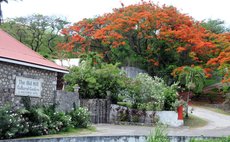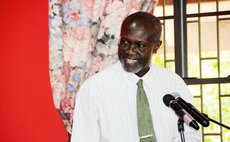Who can recognize the creole brand?
A survey on Dominica's Creole brand recognition was conducted a few years ago among stay-over visitors to Dominica's shores. Of 100 respondents, only 14 could readily identify with an artist or musical group from Dominica. Thirty-five percent, however, said that they were aware of the term Creole music as one which is of French origin. Visitors from the US and other parts of Europe (excluding France) indicated that to them Creole music was one which they associated with Haiti and the French dependencies of Guadeloupe and Martinique.
Only 10%, most being repeat visitors, were aware of the unique Dominican Creole music and cultural experience of the contemporary Cadance, Bouyon or the traditional Bèlè or Jing Ping- Quadrille music. The former is a commoditization of the traditional sound created by the youth.
Some 42% were aware or exposed to the Carib culture of Dominica. Quite in contrast with the Jamaican experience where Reggae music and the fame of Bob Marley became a pull factor for visitors, tourists to Dominica came for the country's natural attributes and by chance were exposed to the culture and the music.
On the heels of the observance of independence and the heightened interest in promoting culture by the Division of Culture, radio stations, promotions of the WCMF by the DFC and lately NCCU's efforts at revitalizing the Cadance art form a survey now may reveal an upward awareness of the brand.
Another threat is the dilution of the authenticity of the sound, so much so that no link is made to its originality or to product or events. It was at one time suggested that Bouyon be referred to as Cadance- Bouyon to build on the sound musical foundation already established in the 70's. There are various expressions for instance of Reggae, Zuke or Compa in Jamaica and the French Antilles respectively. These countries more than likely are better at marketing their music while Dominica rarely used their authentic Creole music brand to market the island's products. Jamaica used "Reggae Boyz" or the popular tourist commercial, Marley's 'One Love'; "Come to Jamaica and feel alright" to sell that country.
The survey findings among visitors, however, revealed a greater awareness of the Caribs which is an integral part of the Creole music culture. However, the Caribs of Dominica have changed their name back to the original title, Kalinago, because of negative connotations of underdevelopment and cannibalism attached to their history. Some notable authors have warned about the negative effects of branding evident in the association of ganja to Jamaica's Reggae or whiskey to Scotland, just as is feared by the Caribs of Dominica.
Luckily Dominica does not currently have any such negatives attached to its brand of Creole culture or, more specifically, its music. Therefore, the question is what is holding us back from having live bands and traditional groups employed entertaining visitors at our 13 tourist sites and hotels, as a beginning strategy?
This independence season probably is an appropriate period to discuss how we can utilize this Creole brand that we speak of and extend this to the whole tourist experience.




